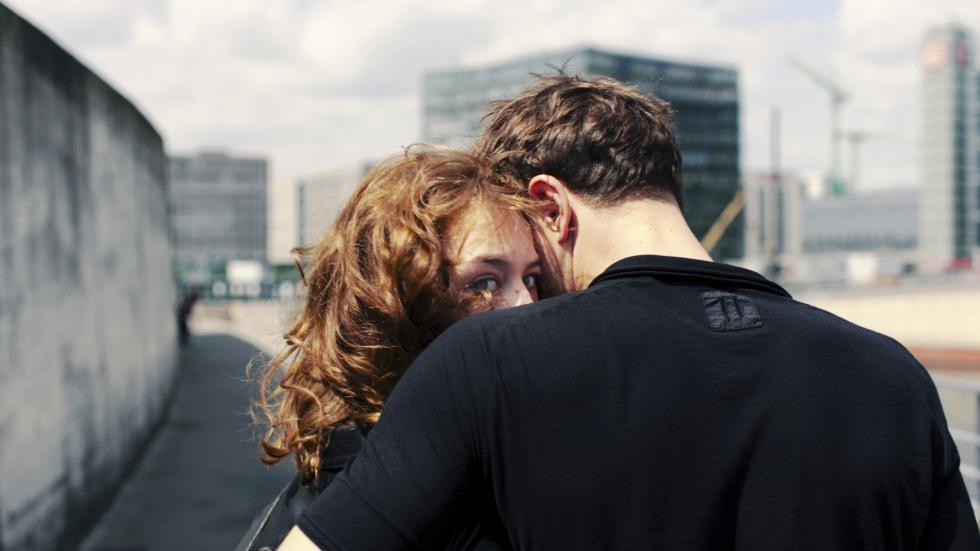Seville, September 15, 2020 -
In spite of the adverse circumstances, the Seville European Film Festival team is preparing a program of which some titles have already been announced, representing only the tip of the iceberg of a rich offering that will bring the best of last year's European films to the public.
The Official Section will include the premiere of Siberia, the latest film by the American Abel Ferrara, who visited Seville in 2019 with Tommaso. Ferrara's latest project, is a co-production between Italy -the country where he resides-, Germany and Mexico. For the third consecutive time, Ferrara relies on a Willem Dafoe, whose character is isolated in the heart of a frozen tundra, to make Siberia a cathartic journey marked by dreams and memories.
Another veteran filmmaker, German Christian Petzold (who with his film Barbara won the Silver Bear for Best Director at the Berlinale in 2012) takes inspiration from Germanic mythology and brings it to contemporary Berlin to build an intense and painful romantic story with a fantasy feel to it. The result is Undine, in which he returns with Franz Rogowski and Paula Beer, the magnetic couple that starred in his previous film, In Transit (2018). This movie will arrive at the Official Section of Seville after winning the Fipresci Award and the Silver Bear for Best Actress, obtained in the last Berlinale.
Two of the titles that aroused most interest at the Cannes market will be part of the 17th Seville Film Festival's program: the Polish/Swedish co-production Sweat, by director Magnus von Horn, which explores the fascination generated by the influencers of healthy living and shows the most vulnerable side of a fitness guru, and Gagarine, the first feature film by the couple Fanny Liatard and Jérémy Trouilh. In this French film, what seems to start as another example of social cinema set in the Parisian suburbs ends up turning into a mix between Close Encounters of the Third Kind and Stranger Things. The young Yuri, who always wanted to be an astronaut, barricades himself and tenaciously guards the public housing block where he has lived all his life (the Gagarin towers), on the verge of being demolished.
El año del descubrimiento, the new feature film by Luis López Carrasco, will be another of the great titles included in the Official Section. This film arrives in Seville after obtaining recognition in Rotterdam, Jeonju (Korea) and the prestigious festival Cinéma du Réel, where it headlined the list of winners. The Murcian director returns to our festival, where he premiered his first feature film, The Future (2013), maintaining that filming style that he defines as a heterodox mix between fiction and non-fiction, Carrasco comes to propose a journey to the Spain of 1992, the same year of the Barcelona Olympics and the Seville Expo, and also the year of the workers' revolt in Cartagena and La Unión, which led to the burning of the Parliament in Murcia. A look at the Spain of yesterday and, also, of today.
More Spanish cinema can be found in our emblematic section The New Waves, with which the Seville Festival offers a window to the most daring works, formally and argumentatively. Lupe Pérez García (director of Diario argentino and Antígona despierta) is the author of P'atrás, ni pa'tomar impulso, produced by Marta Esteban, which will have its international premiere in Seville. The title offers a portrait of Carmen Mesa, a multifaceted flamenco dancer who moves to Buenos Aires for love and in spite of her disappointment decides to stay in the Buenos Aires and defend her true love, flamenco.
The same section will also feature Walden, a French-Lithuanian co-production directed by Bojena Horackova, who chooses two moments in a woman's life: first in her adolescence years, on the verge of tearing down the iron curtain of communism; and 30 years later, on her return to Vilnius after an exile in France. Also from France will come Rascal, Peter Dourountzis' first film, which brings together two characters with a powerful dark side who live on the margins of the system, led by Pierre Deladonchamps (seen in (Stranger by the Lake, Sorry Angel) and Ophélie Bau (Mektoub my Love).
In The New Waves Non-Fiction, the SEFF will present the world premiere of Dear Werner, in which Pablo Maqueda undertakes the same journey on foot from Munich to Paris that the great Werner Herzog followed in the winter of 1974, and which he described in the book Walking on Ice. Maqueda suggests a cinematic pilgrimage following the trail of the essence from the German author's cinema, involved in a personal way in the project through the locution of the film. The sound designer and composer of the original score of the film, José Venditti, will perform live music for the film, a production that engages the viewer with the physical experience of the director's journey.
In addition, two other titles will be featured in The New Waves Non-Fiction. On the one hand, the French-Danish Little Girl, where filmmaker Sébastien Lifshitz follows Sasha, a nine-year-old transgender girl whom he defines as "a modern heroine". The film, which premiered at the Berlinale, explores gender identity from the point of view of a little girl faced with a world that does not accept her differences, and the experience of her family. On the other hand, Downstream to Kinshasa, by Dieudo Hamadi, a co-production between France, Belgium and Congo. This is the compelling story of a group of survivors of the Six Day War on their way to the Congolese capital, Kinshasa, to demand that the indolent authorities recognize the conflict, condemn it and compensate them for the damage they have suffered.







